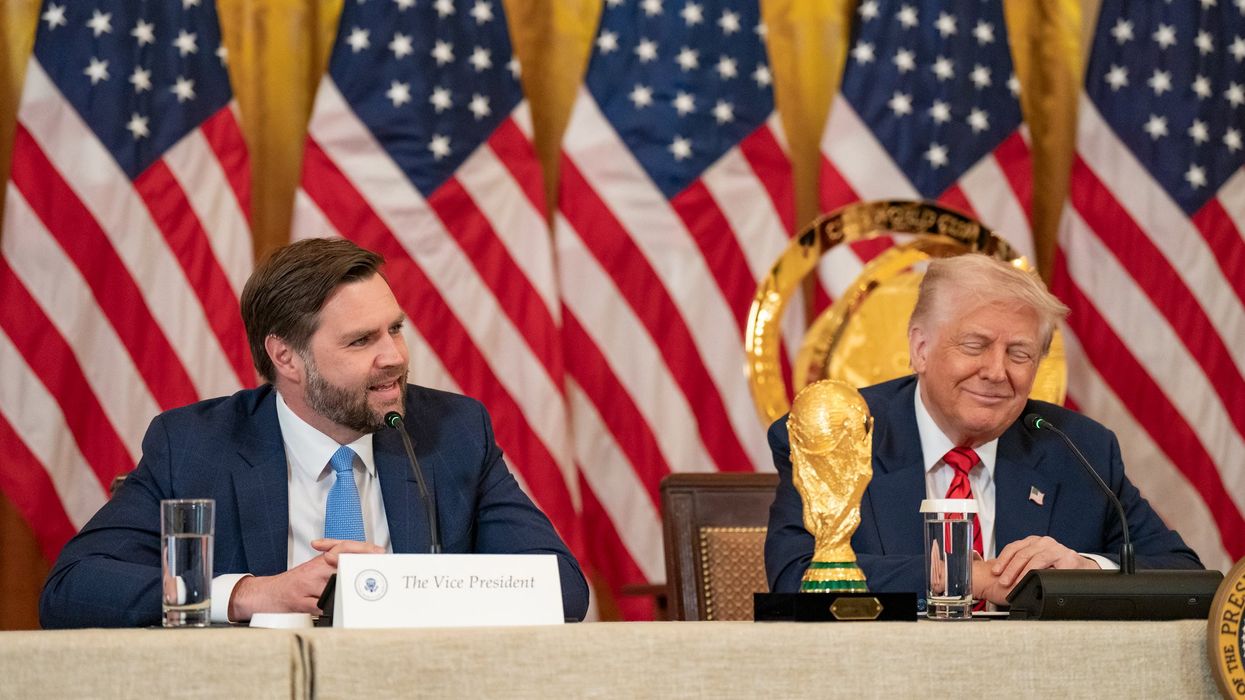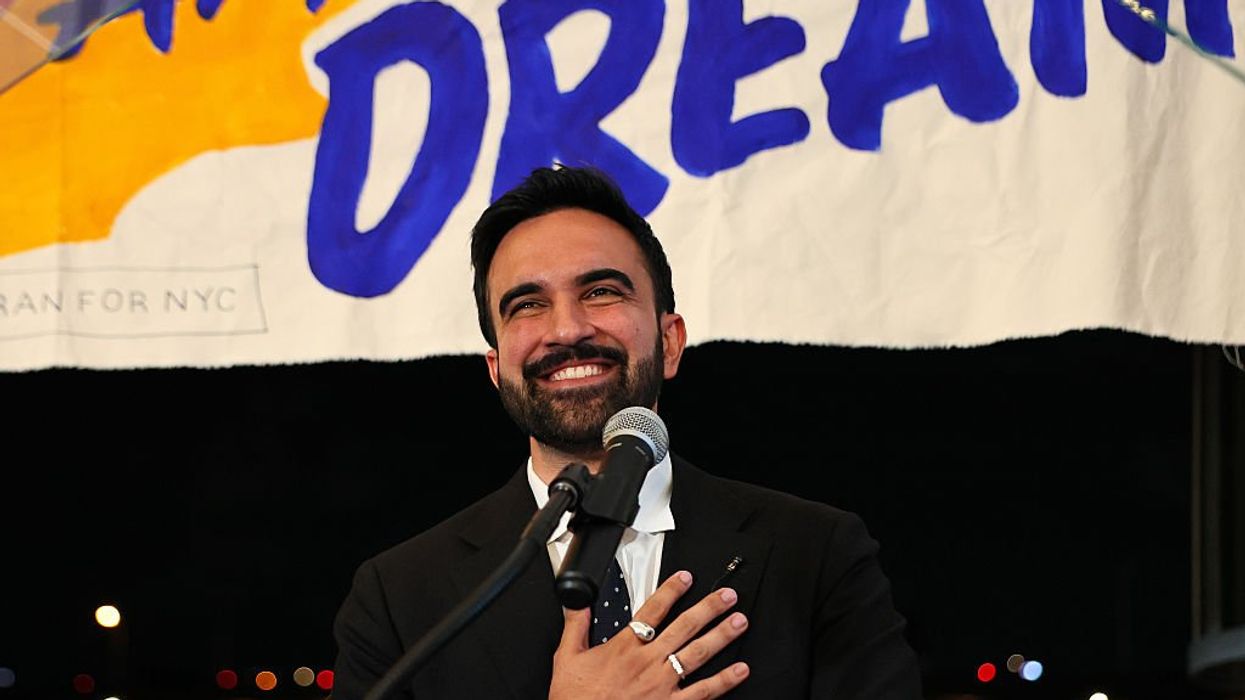© 2025 Blaze Media LLC. All rights reserved.
Obama Signs Defense Funding Bill Despite 'Reservations' About Terror Detainee Provisions
December 31, 2011

(The Blaze/AP) President Barack Obama signed a $662 Billion defense bill into law from Hawaii Saturday, where he is vacationing with his family. The Hill reports that a lengthy signing statement was attached to the bill by the White House, "vehemently objecting to several provisions concerning the detention and prosecution of terror suspects."
"'I have signed this bill despite having serious reservations with certain provisions that regulate the detention, interrogation, and prosecution of suspected terrorists,' Obama said in a signing statement.'Ultimately, I decided to sign this bill not only because of the critically important services it provides for our forces and their families and the national security programs it authorizes, but also because the Congress revised provisions that otherwise would have jeopardized the safety, security, and liberty of the American people."
POLITICO reports that the White House had initially threatened to veto the bill entitled the National Defense Authorization Act, which authorizes both defense and counterterrorism spending through fiscal year 2012 and regulates the detention, interrogation and prosecution of suspected terrorists.
Administration officials told the Associated Press that the President was only signing the measure because Congress made minimally acceptable changes that no longer challenged the president's terrorism-fighting ability.
One of the several changes to the bill that the administration was able to secure includes a provision that would have eliminated executive branch authority to use civilian courts for trying terrorism cases against foreign nationals.
AP reports that the new law now requires military custody for any suspect who is a member of al-Qaida or "associated forces" and involved in planning or attempting to carry out an attack on the United States or its coalition partners. The president or a designated subordinate may waive the military custody requirement by certifying to Congress that such a move is in the interest of national security.
AP reports that the administration also pushed Congress to change a provision that would have denied U.S. citizens suspected of terrorism the right to trial and could have subjected them to indefinite detention. Lawmakers eventually dropped the military custody requirement for U.S. citizens or lawful U.S. residents.
"My administration will not authorize the indefinite military detention without trial of American citizens," Obama said in the signing statement. "Indeed, I believe that doing so would break with our most important traditions and values as a nation."
The attachment of the President's cutting signing statement is ironic considering that candidate Obama heavily criticized President George W. Bush's use of the practice, and promised to make his application of the tool more transparent. Signing statements allow presidents to raise constitutional objections to circumvent Congress' intent.
AP reports that the bill also applies penalties against Iran's central bank in an effort to hamper Tehran's ability to fund its nuclear enrichment program. The Obama administration is looking to soften the impact of those penalties because of concerns that they could lead to a spike in global oil prices or cause economic hardship on U.S. allies that import petroleum from Iran.
Despite the changes, several officials have cited serious concerns that the law will complicate and could harm the investigation of terrorism cases.
AP reports that FBI Director Robert Mueller has said the measure would inhibit his bureau's ability to persuade suspected terrorists to cooperate immediately and provide critical intelligence. Other officials have said agents and prosecutors should not have to spend their time worrying about citizenship status and whether get a waiver while trying to thwart a terror attack.
The $662 billion authorization bill also freezes some $700 million in assistance to Pakistan, until the nation comes up with a strategy to deal with improvised explosive devices.
Want to leave a tip?
We answer to you. Help keep our content free of advertisers and big tech censorship by leaving a tip today.
Want to join the conversation?
Already a subscriber?
more stories
Sign up for the Blaze newsletter
By signing up, you agree to our Privacy Policy and Terms of Use, and agree to receive content that may sometimes include advertisements. You may opt out at any time.
Related Content
© 2025 Blaze Media LLC. All rights reserved.
Get the stories that matter most delivered directly to your inbox.
By signing up, you agree to our Privacy Policy and Terms of Use, and agree to receive content that may sometimes include advertisements. You may opt out at any time.





